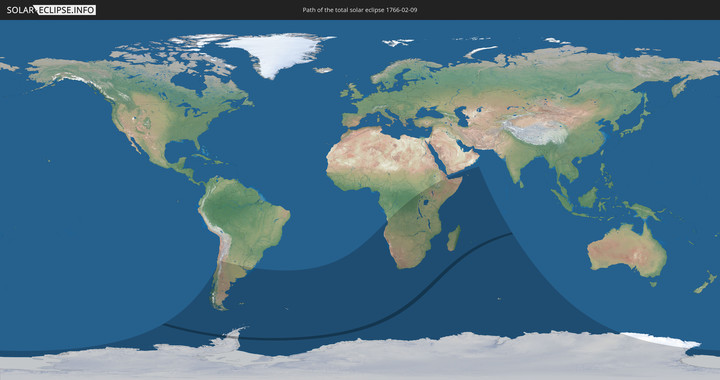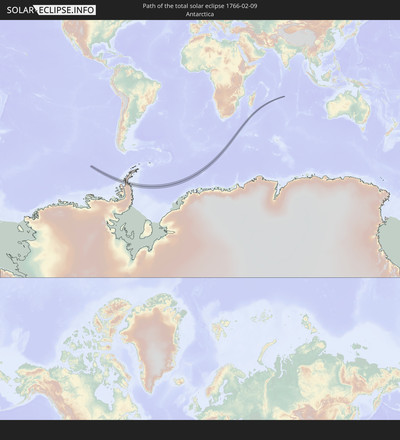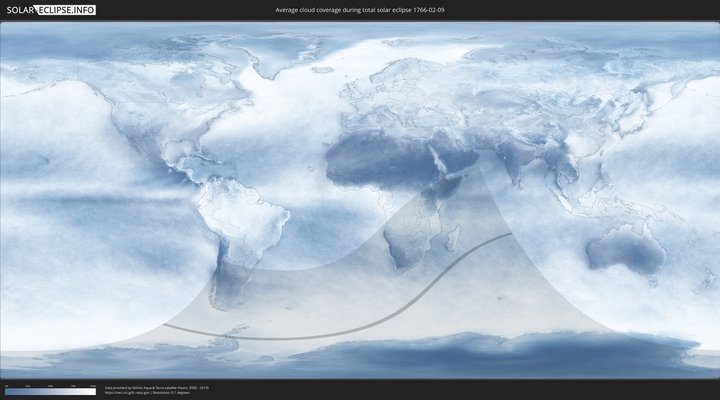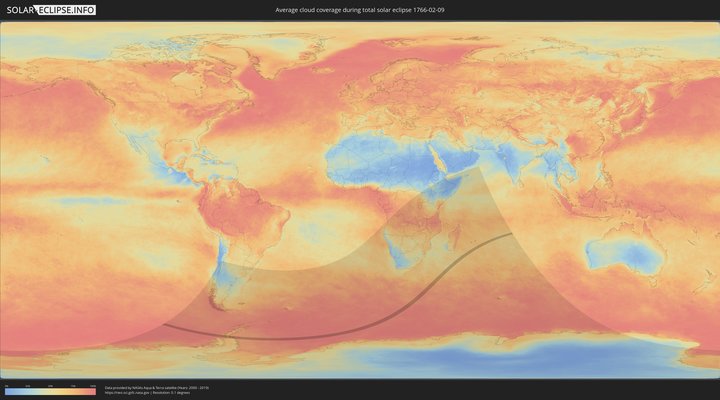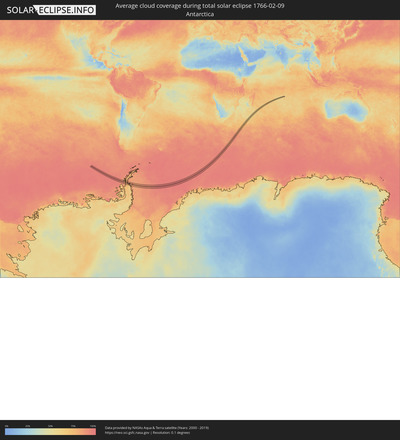Total solar eclipse of 02/09/1766
| Day of week: | Sunday |
| Maximum duration of eclipse: | 02m27s |
| Maximum width of eclipse path: | 156 km |
| Saros cycle: | 117 |
| Coverage: | 100% |
| Magnitude: | 1.0352 |
| Gamma: | -0.6598 |
Wo kann man die Sonnenfinsternis vom 02/09/1766 sehen?
Die Sonnenfinsternis am 02/09/1766 kann man in 35 Ländern als partielle Sonnenfinsternis beobachten.
Der Finsternispfad verläuft durch ein Land. Nur in diesem Land ist sie als total Sonnenfinsternis zu sehen.
In den folgenden Ländern ist die Sonnenfinsternis total zu sehen
In den folgenden Ländern ist die Sonnenfinsternis partiell zu sehen
 Antarctica
Antarctica
 Chile
Chile
 Argentina
Argentina
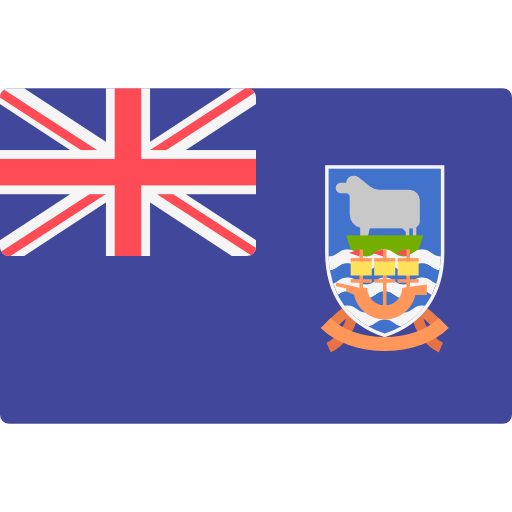 Falkland Islands
Falkland Islands
 Uruguay
Uruguay
 South Georgia and the South Sandwich Islands
South Georgia and the South Sandwich Islands
 Saint Helena, Ascension and Tristan da Cunha
Saint Helena, Ascension and Tristan da Cunha
 Bouvet Island
Bouvet Island
 Angola
Angola
 Namibia
Namibia
 Democratic Republic of the Congo
Democratic Republic of the Congo
 South Africa
South Africa
 Botswana
Botswana
 Zambia
Zambia
 Zimbabwe
Zimbabwe
 Lesotho
Lesotho
 Rwanda
Rwanda
 Burundi
Burundi
 Tanzania
Tanzania
 Uganda
Uganda
 Mozambique
Mozambique
 Swaziland
Swaziland
 Malawi
Malawi
 Ethiopia
Ethiopia
 Kenya
Kenya
 French Southern and Antarctic Lands
French Southern and Antarctic Lands
 Somalia
Somalia
 Yemen
Yemen
 Madagascar
Madagascar
 Comoros
Comoros
 Mayotte
Mayotte
 Seychelles
Seychelles
 Réunion
Réunion
 Mauritius
Mauritius
 Heard Island and McDonald Islands
Heard Island and McDonald Islands
How will be the weather during the total solar eclipse on 02/09/1766?
Where is the best place to see the total solar eclipse of 02/09/1766?
The following maps show the average cloud coverage for the day of the total solar eclipse.
With the help of these maps, it is possible to find the place along the eclipse path, which has the best
chance of a cloudless sky.
Nevertheless, you should consider local circumstances and inform about the weather of your chosen
observation site.
The data is provided by NASAs satellites
AQUA and TERRA.
The cloud maps are averaged over a period of 19 years (2000 - 2019).
